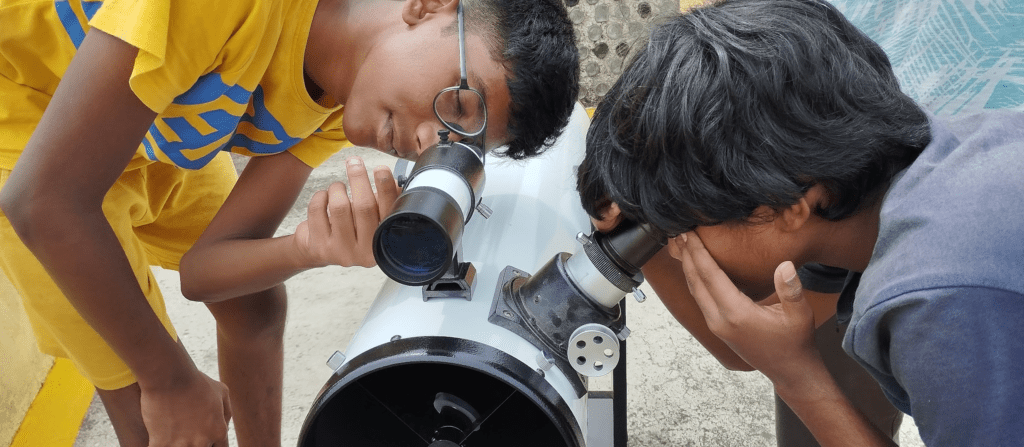
Observation vs Judgements vs Conclusions – what’s your lens?
Currently, Aarohi Community is on a break after completing term 1. A big chunk of the break time is spent in each family reviewing their open learning journey during the last term.
For the review, the parents as well as the child rate their own journey and share thoughts on the rankings they have given to themselves.
After the self assessment is done, the family also spends time to work out their action plan on – ‘how I will work on the respective areas’ or ‘why I will not work on a particular thing’
Parallelly, facilitators also start filling in their observations. As one of the facilitators, when I started filling out the sheets –
I quickly found myself typing in big big adjectives (or labels) like ‘inattentive’, ‘leader’, ‘not participative’, ‘over confident’, ‘under confident’ and the list went on
Once the judgement was done, came in the conclusions – ‘try listening more in the sessions’, ‘work on your confidence’
Observe like a CCTV
And suddenly, I had a major realisation – thanks to having done the jagriti program where in one of the sessions we were told to ‘OBSERVE like a CCTV’. The CCTV just records the events as is and displays it to the viewer as is…. It doesn’t add anything to the recording.
What happens when I have judgements or come to conclusions-
- I realised i am jumping to judgements based on a couple of interactions and my limited understanding of the other person.
- Then came the issue of how many interactions are needed to judge a person? Will I (or even a parent) ever understand everything about the child? Aren’t we all changing, evolving all the time?
- And how do these labels help the child in any case, if anything it only complicates with the child being bombarded with endless adjectives and so many images they end up holding about themselves for no good reason.
- And when i suggest something, even though with all the good intentions, I am still offering only 1 possibility that i can think of.
What happens when i offer my observations to the child like a CCTV –
- observations are specific. the more the details the better is the observation
- observations are never generic or genralised or vague
- even if i had 1 interaction with the child, I can still offer my observation from that interaction
- observations help the child become ‘aware’ of their actions
- the child can ‘act’ or ‘not act’ in million different ways as per his need, want, understanding, interests based on the observations offered
How to start observing? (some examples)
- in most sessions, checks with others if she can share her views
- in every sessions, has shared her views around the discussion topic
- in 1-2 teens’ sessions, spoke on a topic for over 2 mins
- spoke about history, politics, culture while talking on a single topic of societal expectations
- enthusiastically moved his hands while sharing an anecdote around tennis
- cracks jokes in between sessions
- in 1 reflection on emotions, shared how he was joyful most of the week but felt anxious during tennis
- asked why are we doing star gazing klub in the afternoon
- proposed it should be done at night
- in all sessions, he talks to participants of different ages
- in 3-4 online sessions, he has started talking when someone else was sharing their views
- he stopped talking and waited for his turn when he was asked to
Inviting all parents to literally write down observations about their child over a day or week and share it with the child. Let us know what did the act of ‘observing your child’ do to you as a parent?
